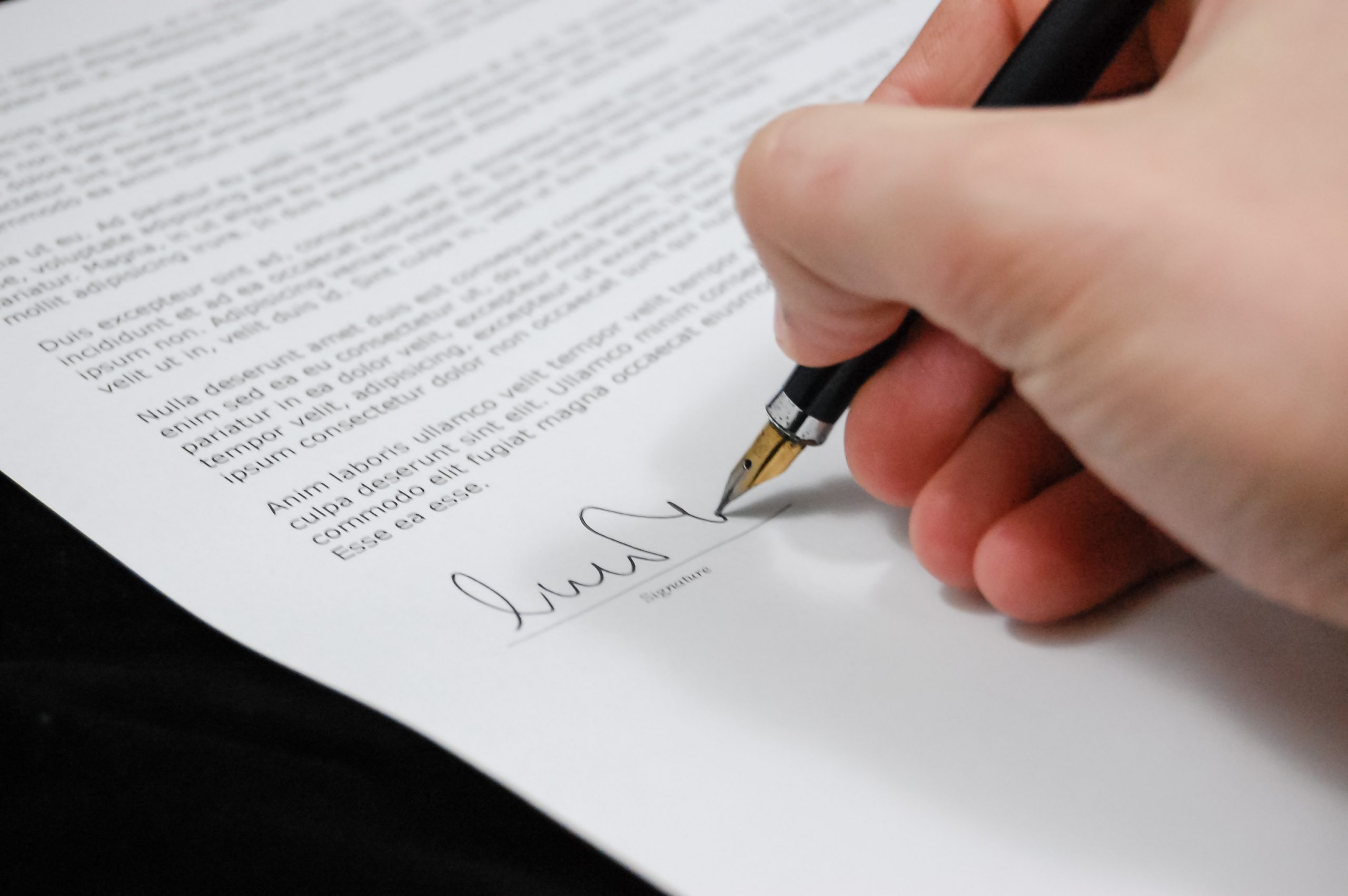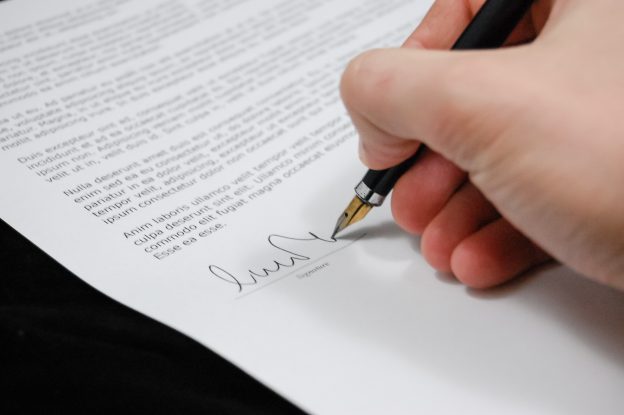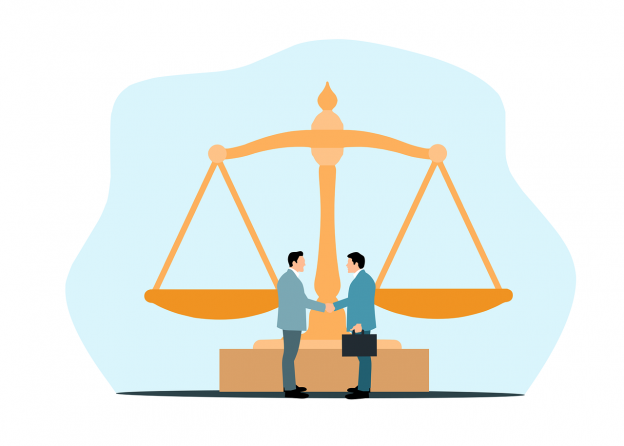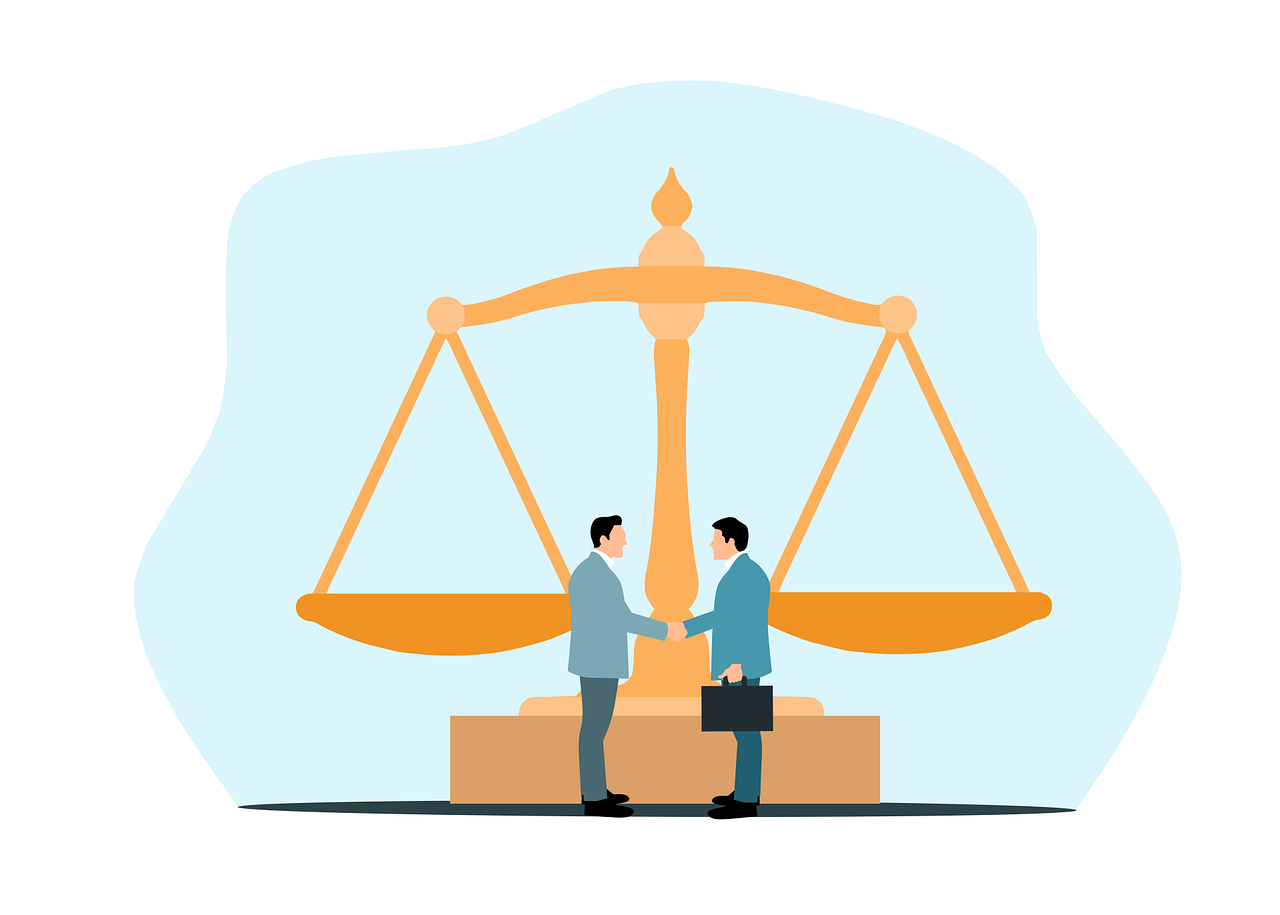In the complex world of criminal law, the process of appeals plays a crucial role in ensuring justice is served. When a defendant is convicted of a crime, they have the right to appeal the decision in higher courts. This article explores the intricacies of criminal appeals and how they can provide a chance for individuals to advocate for their rights. By delving into the various grounds for appeal and the procedures involved, we aim to provide a comprehensive understanding of this vital aspect of the legal system. If you or your company find yourselves in a situation where criminal charges have been brought against you, it is imperative to seek professional counsel. Our experienced team of lawyers is here to guide you through the appeals process and help safeguard your rights.

Understanding Criminal Appeals
Criminal appeals are legal processes that allow individuals who have been convicted of a crime to seek a review and potential reversal of their conviction or sentence. In these appeals, the higher court reviews the lower court’s decision to determine if any errors were made that influenced the outcome of the case. Understanding the various aspects of criminal appeals is crucial for individuals seeking to challenge their convictions or sentences.
What Are Criminal Appeals?
Criminal appeals refer to the legal proceedings by which individuals who have been convicted of a crime seek a review of their case by a higher court. The purpose of these appeals is to identify and rectify any errors made during the initial trial that may have affected the outcome in an unjust manner. By filing a criminal appeal, individuals have the opportunity to present legal arguments supporting the need for a different verdict or modified sentence.
Purpose of Criminal Appeals
The primary purpose of criminal appeals is to ensure that the criminal justice system operates fairly and effectively. Criminal appeals provide an avenue for individuals who believe they have suffered a wrongful conviction or an unjust sentence to challenge the lower court’s decision. Through the appellate process, the higher court reviews the lower court’s procedures, evidence, and legal interpretation, ultimately determining if any errors were made that warrant a new trial or amended sentence.
Who Can File a Criminal Appeal
Any individual who has been convicted of a crime has the right to file a criminal appeal. This right extends to both misdemeanor and felony convictions. It is essential to note that the appellant, or the person filing the appeal, must have legal standing in the case, meaning they must have been directly affected by the lower court’s decision. Generally, the convicted individual or their legal representative, such as an attorney, files the appeal on their behalf.

Grounds for Filing a Criminal Appeal
Several grounds can serve as the basis for filing a criminal appeal. These grounds typically involve errors or violations committed during the trial that may have impacted the fairness of the proceedings or the final outcome. Some common grounds for filing a criminal appeal include:
1. Improper Jury Instructions
If the jury instructions given by the judge were inaccurate or unclear, it could result in a wrongful conviction or an unfair trial. Appellants can argue that the jury’s decision was influenced by these improper instructions.
2. Ineffective Assistance of Counsel
When the appellant believes their defense attorney provided inadequate or incompetent representation that affected the outcome of their case, they can file an appeal based on ineffective assistance of counsel.
3. Prosecutorial Misconduct
If the prosecutor engaged in misconduct during the trial, such as withholding evidence or making inappropriate statements, it can serve as a grounds for appeal. Appellants can argue that the misconduct affected the fairness of the trial.
4. Insufficient Evidence
Appellants can file an appeal if they believe that the evidence used to convict them was insufficient or unreliable. They can present arguments to the higher court challenging the sufficiency of the evidence presented during the trial.
5. Violation of Constitutional Rights
If an appellant’s constitutional rights, such as the right to a fair trial or the right against self-incrimination, were violated during the trial, they can appeal the conviction or sentence based on these violations.
The Process of Criminal Appeals
The process of criminal appeals involves several key steps that must be followed to seek a review of a conviction or sentence. Understanding these steps is crucial for individuals interested in filing a criminal appeal.
Notice of Appeal
The first step in the appellate process is filing a notice of appeal with the appropriate court. This notice informs the court and the opposing party that the convicted individual intends to appeal their conviction or sentence. The notice typically includes the grounds for the appeal and any desired outcomes.
Appellate Briefs
After filing the notice of appeal, the appellant’s attorney prepares an appellate brief, which is a written argument outlining the legal and factual basis for the appeal. The appellate brief presents the appellant’s position, references relevant case law and statutes, and highlights any errors or violations committed during the trial.
Oral Arguments
Once the appellate briefs have been submitted, the parties may be given an opportunity to present oral arguments before the appellate court. During oral arguments, the appellant’s attorney and the opposing counsel have a chance to present their case, respond to the judges’ questions, and further clarify their legal positions.
Appellate Court Decision
Following the submission of appellate briefs and oral arguments, the appellate court will review the case and issue a decision. The court may affirm the conviction and sentence, modify the sentence, overturn the conviction, or order a new trial, depending on the merits of the appeal and the issues raised.
Types of Criminal Appeals
Criminal appeals can be classified into three main categories based on the stage at which they are filed and the grounds for the appeal. Understanding these types of appeals is essential to determine the appropriate course of action for challenging a conviction or sentence.
1. Direct Appeals
Direct appeals, also known as “appeals as of right,” are filed immediately after a conviction and sentencing. These appeals challenge the legal errors and violations committed during the trial and focus on ensuring a fair and just outcome. Direct appeals typically involve issues related to the interpretation and application of the law, improper jury instructions, evidentiary errors, or violations of constitutional rights.
2. Collateral Appeals
Collateral appeals, also referred to as “post-conviction appeals,” are filed after the direct appeal process has been exhausted. These appeals address issues that were not previously raised or could not have been raised during the direct appeal. Collateral appeals typically involve claims of ineffective assistance of counsel, newly discovered evidence, newly developed legal theories, or violations of the appellant’s constitutional rights.
3. Post-Conviction Appeals
Post-conviction appeals are a specific type of collateral appeal that focuses on challenging the validity of the conviction or sentence due to new evidence or errors that were not known or could not have been known at the time of the trial or direct appeal. Post-conviction appeals are typically filed based on newly discovered DNA evidence, witness recantations, or other significant developments that have a direct impact on the appellant’s guilt or innocence.
Common Issues Addressed in Criminal Appeals
Criminal appeals can tackle a wide range of legal issues that may have influenced the outcome of the trial. It is important to address these common issues in appellate arguments to strengthen the chances of a successful appeal.
1. Improper Jury Instructions
One of the most common issues addressed in criminal appeals is the use of improper jury instructions during the trial. If the instructions given to the jury were incorrect, misleading, or insufficient, it can lead to an unjust verdict. Appellants often argue that these instructions swayed the jury’s decision and resulted in a wrongful conviction.
2. Ineffective Assistance of Counsel
Claims of ineffective assistance of counsel can significantly impact the outcome of a criminal appeal. Appellants contend that their defense attorney failed to provide competent representation, resulting in errors or omissions that affected the fairness of the trial. Whether it involves inadequate preparation, failure to present crucial evidence, or lack of communication, ineffective assistance of counsel claims challenge the integrity of the trial process.
3. Prosecutorial Misconduct
Prosecutorial misconduct refers to any improper or unethical behavior on the part of the prosecutor during the trial. This can include withholding evidence, making prejudicial statements, or engaging in unethical practices to secure a conviction. Appellants often argue that prosecutorial misconduct compromised the fairness and integrity of the trial, influencing the jury and leading to an unjust result.
4. Insufficient Evidence
Appeals based on insufficient evidence focus on challenging the prosecution’s case and the evidence presented against the appellant. Appellants argue that the evidence presented was inadequate or unreliable to prove their guilt beyond a reasonable doubt. They may highlight inconsistencies, lack of corroborating evidence, or unreliable witnesses to demonstrate the insufficiency of the evidence presented during the trial.
5. Violation of Constitutional Rights
Criminal appeals frequently address the violation of the appellant’s constitutional rights during the trial. This can involve violations of the Fourth Amendment’s protection against unreasonable searches and seizures, the Fifth Amendment’s privilege against self-incrimination, or the Sixth Amendment’s right to counsel. Appellants assert that these violations compromised their right to a fair and impartial trial.

Factors to Consider When Filing a Criminal Appeal
When preparing to file a criminal appeal, several important factors need to be considered to increase the chances of success and maximize the effectiveness of the appellate process.
1. Legal Precedents
Understanding established legal precedents and relevant case law is crucial when formulating arguments for a criminal appeal. Analyzing similar cases where favorable rulings have been achieved can provide guidance on legal strategies and how to distinguish the appellant’s case from others.
2. Case Strategy
Developing a strong case strategy is essential for a successful criminal appeal. This requires a comprehensive evaluation of the trial record, identification of errors or violations that occurred, and a clear plan for presenting these issues in the appellate brief and oral arguments. A well-planned case strategy enhances the appellant’s chances of obtaining a favorable outcome.
3. Appellate Court Jurisdiction
Understanding the jurisdiction and specific rules of the appellate court where the appeal will be filed is critical. Each appellate court has its own procedures and requirements that must be followed. Failure to comply with these rules can result in the dismissal of the appeal. Enlisting the guidance of an experienced appellate attorney adept in navigating these jurisdictions can be invaluable.
4. Time Constraints
Strict deadlines govern the filing of criminal appeals. Missing these deadlines can result in the appeal being dismissed, denying the appellant the opportunity to have their case heard. It is crucial to be aware of the specific time constraints and ensure that all necessary documents are filed within the designated timeframes.
Working with an Appellate Attorney
Navigating the complex process of criminal appeals requires the expertise and guidance of an experienced appellate attorney. Working with an appellate attorney provides individuals with the necessary support and understanding of the intricacies involved in challenging a criminal conviction or sentence.
Experience and Expertise
Appellate attorneys specialize in criminal appeals and possess the knowledge and skills necessary to navigate the appellate process effectively. They have experience handling a wide range of criminal cases and understand the nuances of appellate law. By leveraging their expertise, individuals can maximize their chances of achieving a successful outcome in their appeal.
Case Evaluation
Appellate attorneys conduct comprehensive case evaluations to determine the viability of an appeal. They review trial transcripts, evidence, and legal documents to identify potential errors or violations that may serve as grounds for an appeal. Through this evaluation, appellate attorneys provide individuals with an honest assessment of their case and advise on the best course of action.
Appellate Brief Preparation
One of the key roles of an appellate attorney is to prepare a persuasive and compelling appellate brief. This document presents the legal arguments, analysis, and supporting facts to the higher court. Through meticulous research, well-crafted legal writing, and a thorough understanding of appellate procedures, the appellate attorney advocates for the appellant’s position and aims to convince the court to reverse the conviction or modify the sentence.
Oral Argument Representation
Appellate attorneys also provide representation during oral arguments before the appellate court. They present the appellant’s case, respond to the judges’ questions, and provide additional clarification on legal issues raised in the brief. Through persuasive and articulate oral advocacy, appellate attorneys seek to further strengthen the appellant’s position and persuade the court to rule in their favor.
The Importance of a Skilled Appellate Attorney
Retaining a skilled appellate attorney is of utmost importance when facing a criminal appeal. By enlisting the services of a knowledgeable and experienced attorney, individuals can benefit in several crucial ways.
Protecting Constitutional Rights
Skilled appellate attorneys are well-versed in constitutional law and can identify any violations of an appellant’s constitutional rights during the trial. They ensure that these violations are adequately addressed in the appeal, protecting their client’s fundamental rights and promoting fairness in the criminal justice system.
Maximizing Chances of Success
The expertise of a skilled appellate attorney increases the likelihood of success in a criminal appeal. They possess an in-depth understanding of the law, legal procedures, and persuasive strategies required to make a compelling argument. By employing effective advocacy techniques and presenting strong legal reasoning, appellate attorneys maximize their clients’ chances of obtaining a favorable outcome.
Navigating Complex Legal Proceedings
The appellate process involves complex legal proceedings that can be challenging to navigate without the guidance of an experienced attorney. Skilled appellate attorneys understand the intricacies of the appellate system, the specific requirements of the appellate courts, and the procedures for filing and arguing appeals. Their expertise streamlines the process and ensures that every aspect of the appeal is handled effectively.
FAQs About Criminal Appeals
What is the difference between a direct appeal and a collateral appeal?
A direct appeal is filed immediately after a conviction and sentence, challenging errors committed during the trial or sentencing. A collateral appeal, on the other hand, is filed after the direct appeal process has been exhausted and focuses on issues that were not previously raised or could not have been raised during the direct appeal.
Can new evidence be introduced during a criminal appeal?
Typically, new evidence cannot be introduced during a criminal appeal. Appeals are based on the evidence and issues that were presented during the trial. However, in certain circumstances, such as a post-conviction appeal, new evidence that was not available during the trial may be considered.
What is the role of the appellate court in a criminal appeal?
The appellate court’s role in a criminal appeal is to review the lower court’s decision and determine if any errors were made that influenced the outcome of the case. The appellate court assesses the legal arguments presented in the appellate briefs, considers any oral arguments made, and ultimately decides whether to affirm the conviction and sentence, modify the sentence, overturn the conviction, or order a new trial.
How long does the criminal appeals process usually take?
The duration of the criminal appeals process can vary depending on several factors, including the complexity of the case, the backlog of cases in the appellate court, and the specific jurisdiction. In general, the process can take several months to several years, with some cases taking even longer.
Why is it crucial to hire an appellate attorney for a criminal appeal?
Hiring an appellate attorney is crucial for a criminal appeal due to the complexities of the appellate process and the specialized knowledge required. Appellate attorneys have the experience, expertise, and understanding of appellate law to navigate the process effectively, identify errors or violations, and present persuasive arguments. Their guidance maximizes the chances of success and ensures that an individual’s rights are protected throughout the appeal process.

















































